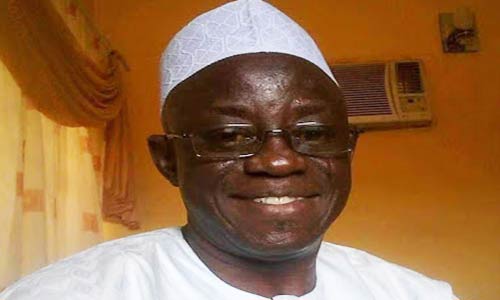 A former Governing Board Chair of Kwara State Polytechnic serving a 12-year jail term, Dr Saad Alanamu has been granted a state pardon by President Muhammed Buhari.
A former Governing Board Chair of Kwara State Polytechnic serving a 12-year jail term, Dr Saad Alanamu has been granted a state pardon by President Muhammed Buhari.
Hon. Justice Mahmud Abdulgafar of Kwara State High Court had in May 2019 handed down a 12-year jail term to Alanamu having been found guilty of collecting a N5,000,000 bribe from a contractor friend of his as a kickback for the award of a contract in a case brought by the Independent Corrupt Practices and Other Related Offences Commission (ICPC).
Dissatisfied with the sentence, his counsel, Professor Amuda Kanike (SAN), had approached the appellate court and eventually the Supreme Court which both upheld the judgment of the State High Court.
In a unanimous decision, the Supreme Court struck out all the grounds of appeals as incompetent, misconceived and lacking in merit and accordingly affirmed the conviction and sentencing of Alanamu to 12 years imprisonment based on the same fact handed down to him by the appellate and trial courts.
However, the presidency has confirmed that Alanamu is a beneficiary of the Presidential pardon as revealed in a statement issued by the Senior Special Assistant to the President on Media and Publicity, Garba Shehu.
Although he was clarifying issues arising from State Pardons to two ex-Governor which has elicited public reactions, he said Dr Saadu Alanamu is one of those granted State pardons alongside former governors of Plateau and Taraba, Joshua Dariye and Jolly Nyame.
The Presidency explained that the State pardon granted Alanamu and others was based on a recent note presented to the Council of State, on the report of the Presidential Advisory Committee on the Prerogative of Mercy, as a culmination of a process which begun by the convicts and others concerned in line with section 175(1) of the Constitution of the Federal Republic of Nigeria 1999 (as amended).
The statement said the section of the Constitution “enjoins the President to exercise his constitutional powers “to grant any person concerned with or convicted of any offence created by an Act of the National Assembly a pardon, either free or subject to lawful conditions; to grant respite, either for an indefinite or a specified period of the execution of any punishment imposed on that person for such an offence; substitute a less severe form of punishment imposed on that person for such an offence or remit the whole or any part of any punishment imposed on the person for such an offence or of penalty or forfeiture otherwise due to the state on account of such an offence.”
The presidency further noted that the Federal Government constituted the PACPM on August 28, 2018, with the mandate of assisting the President in the discharge of his constitutional responsibility of granting pardon/clemency to convicts or ex-convicts in deserving cases.
It said the Committee filed its first report in March 2020 and reconvened on Thursday, September 2021 to attend to the myriad of pending applications for presidential pardon and clemency from Nigerians across the country.
These accrued cases followed the established process of applying for pardon or clemency first to the Correctional Service (formerly Nigerian Prison Service), which must certify claims made, be they of life-threatening ill-health, (as in the cases of Governors Dariye, Nyame; John Uloh, Umar Bamalli, Sa’adu Alanamu, Charles Ihenatu, Akinwumi Ajayi and tens of others making the approved list of 159; or such cases arising from remorse and good conduct or plainly on the basis of compassion among other stated criteria.
“The PACPM members, under the Attorney General and Minister of Justice, followed up the recommendations with a visit to selected Correctional Centers in several states of the Federation to ‘critically appraise and identify potential cases of convicts and ex-convicts before recommending them for presidential pardon/clemency and reduced sentences,” Shehu explained.
Of the 412 inmates interviewed, 162 were recommended to the Council of State by the President in the exercise of his powers, pursuant to Section 175 (2) which requires that he should carry out this function after being “advised by the Council.”
The Presidency argued that “the presentation to the Council of States meeting last week, attended by former Presidents, a former Chief Justice and 36 States and the FCT along the lines of its statutory membership was a culmination of a rigorous process, regulated and guided by the law which was not, in any way designed to achieve a political purpose.
The irony of Dr Alanamu’s pardon is that he was the same man who was nominated to the Board of the Independent Corrupt Practices and Other Related Offences Commission (ICPC) in 2017 but was later dropped on an allegation of corruption and public outcry.




Comments powered by CComment